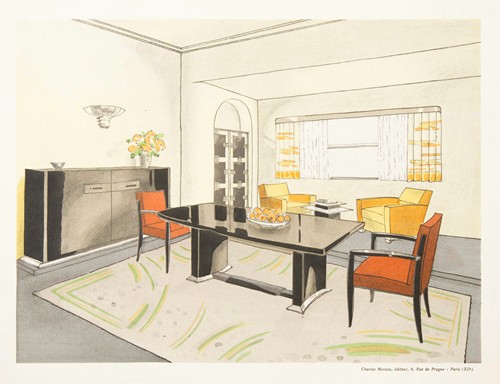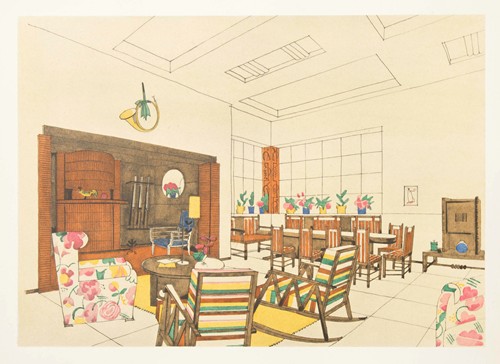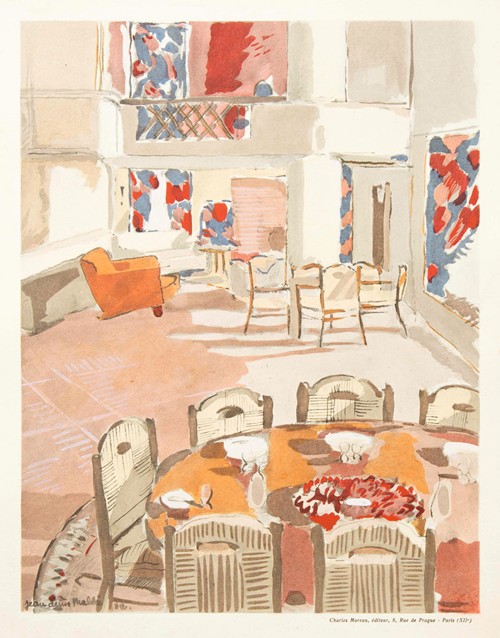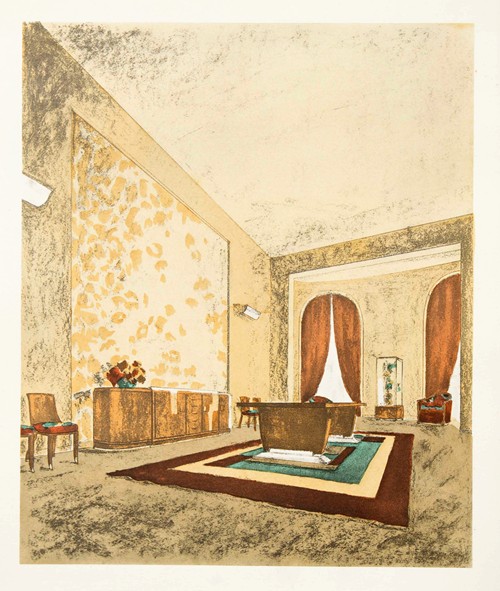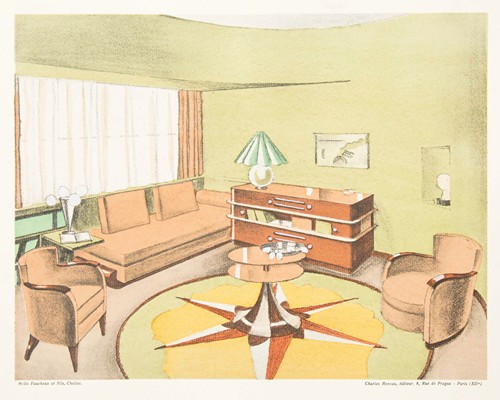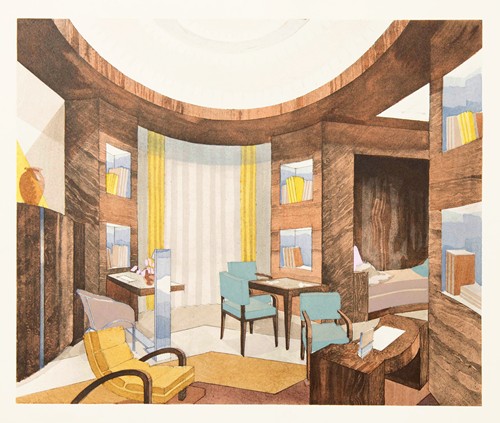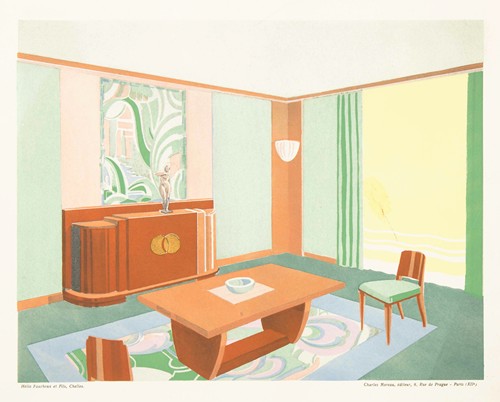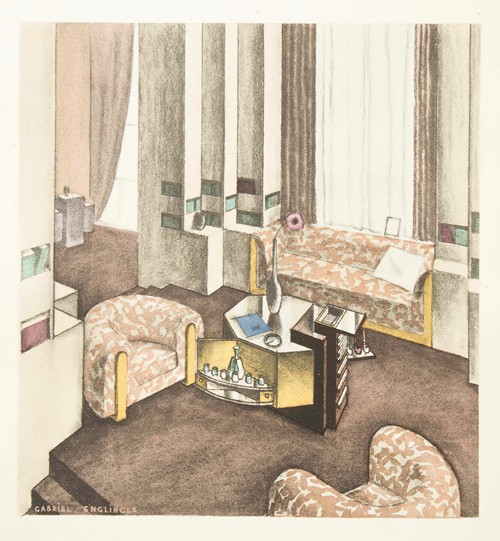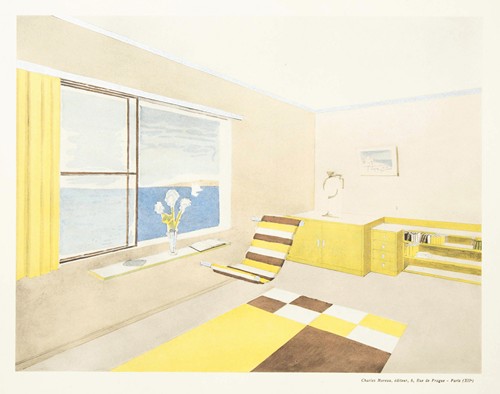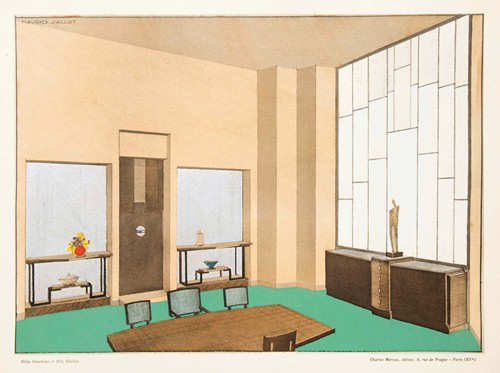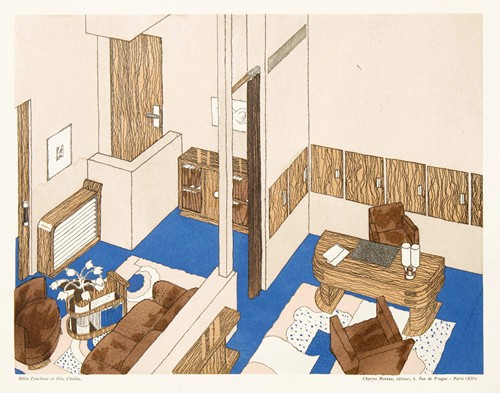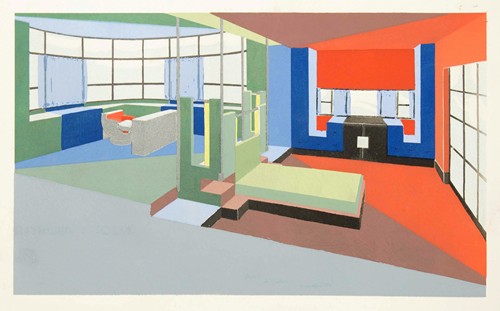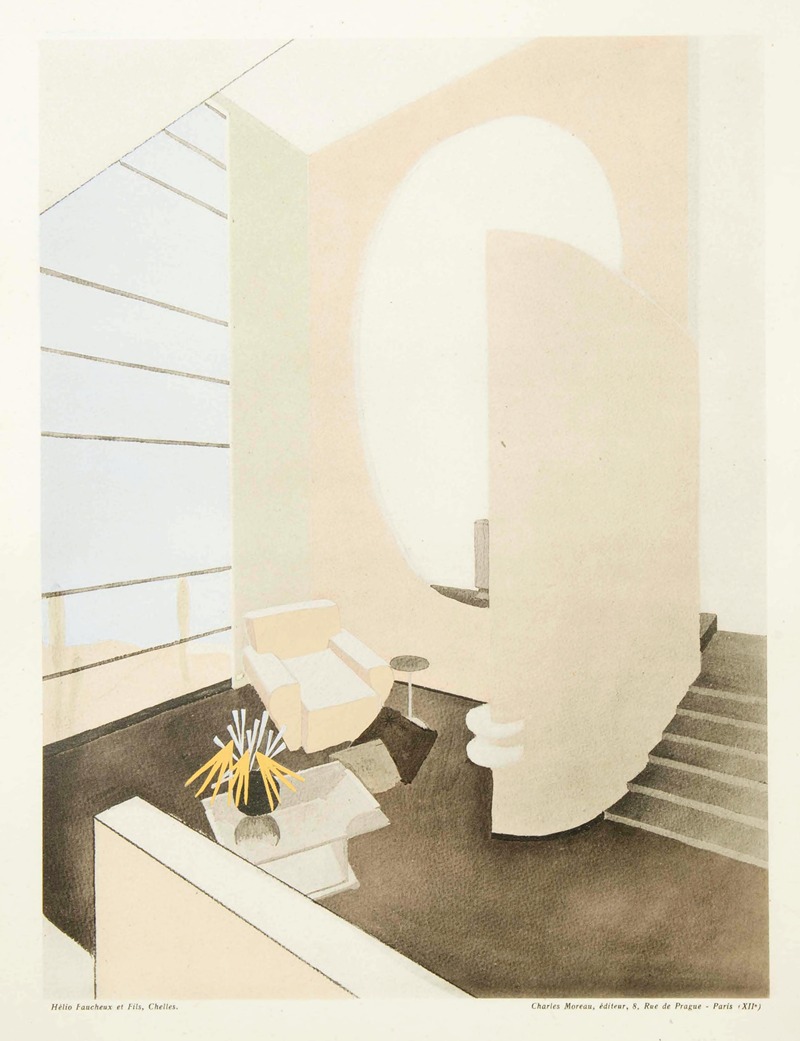
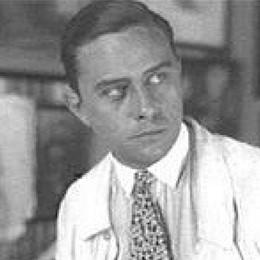
Maurice Jallot was born in Paris during the 1900 Exposition Universelle – an auspicious beginning for a career in the arts. He studied at the Ecole Boulle in Paris and upon graduating, joined his father’s (Leon Jallot) studio in 1921. He left for a while to gain outside experience and rejoined the firm in 1930.
A versatile and imaginative designer, Maurice Jallot exhibited a range of pieces and ensembles at the annual salons, some in partnership with his father and some singly.
For the 1925 L'Exposition internationale des arts décoratifs et industriels modernes - the World's fair held in Paris, France, from April to October 1925 the Jallots provided furnishings for the Hotel du Collectionneur (grand salon), Ambassade Francaise, La Societe Noel, La Maison de Bretagne, and Gouffe Jeune.
Their furniture in the 1920s was fabricated from woods – palisander, walnut, pearwood, amboyna, camphor. From the mid-1920s the Jallots faced the challenge common to all woodworkers: whether to adjust to, or fight, the revolutionary introduction of glass and metal. They chose the former, introducing a distinctive range of modern furniture: stainless steel tables, mirrored cabinety, etc.
Maurice participated in the interior decoration for A French Embassy and the Collector’s Residence at the 1937 Exposition Internationale des Arts et Techniques dans la Vie Moderne in Paris. The French Mobilier Nationale has conserved a commode purchased in 1945.
Throughout his career Maurice Jallot called upon the sculptor Paul Belmondo (father of the French actor Jean Paul Belmondo) to contribute decorative elements.
Maurice Jallot kept the family design firm running until nearly 1950, after his father’s retirement.
